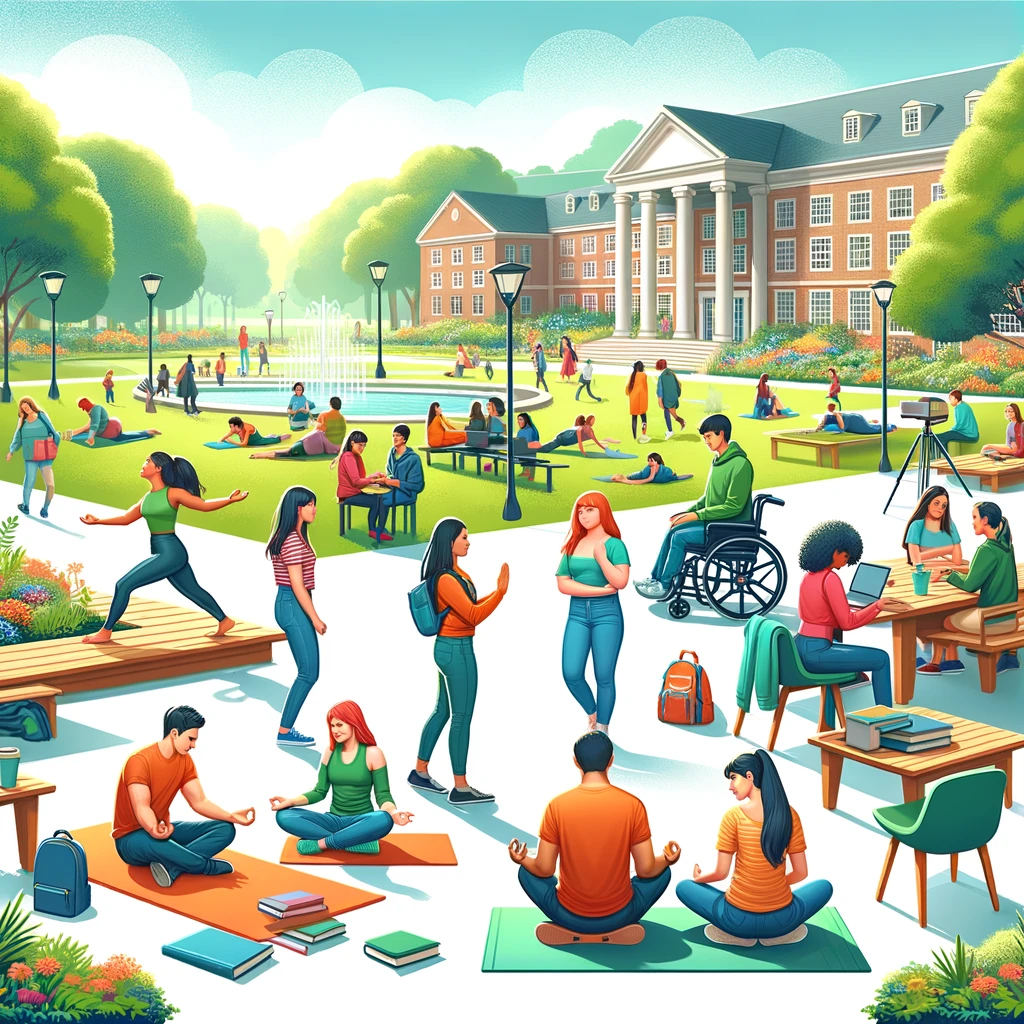While this is certainly not a good trait, there are a myriad of mechanisms that exist to help people remember more often than not.
Yes, keeping a calendar, writing snippets in your notes, setting up reminders, and preparing to-do lists might appear to be sufficient. However, these methods are somewhat just the bare minimum as they are prohibited in the examination centers.
Moreover, these pre-existing methods do no good in embedding knowledge in our long-term memory. Long-term memory is a type of memory that has unlimited capacity and can last for a lifetime. Another type of memory is known as short memory which retains information for shorter periods, 20 to 30 seconds, or even less.
Over the last decade, scientists have argued that having good mental health is an important facet of retaining information in long-term memory. Modern-day students feed off so much social media content, which invariably affects the positive state of their mental health. Because of this, students must take care of their mental well-being. Whether it’s speaking to a qualified therapist or a professional with an online Masters School of Counseling or taking smaller steps toward better self-care, students need to find ways to prioritize their health if they are to do well during their examination period.
In this article, we’ll explore techniques that can enhance recall for all types of exams which applies to students and professionals alike.
1. Structure and Organize
Research has shown that clustering information leads to a greater recall. Naturally, the human brain is designed uniquely; for new information to be retained in long-term memory, it must be done in segments not in bulk.
Individuals will be on top of their game if they master the subtle act of segmenting information. Techniques such as acronyms and mnemonics, categorization, and hierarchical organization are some examples in which students can practice structuring and organizing information or knowledge.
2. Visualization
Visual cues serve as a great tool for our memory to recall information. They help trigger instant memory recall by creating an analogy of information or knowledge with visual elements including line, shape, color, value, form, texture, and space.
The use of visuals is important as it provides an anchor point for readers. More than what words can do, visuals have the unique power to resonate with the intricate emotions of individuals. This sequentially increases the likelihood of information being retained in long-term memory.
3. Reading Information Out Loud
You are more likely to recall something if you read it out loud. The action of speaking and hearing oneself has a tremendous impact on storing information in long-term memory. This act can be a turning point for people who are in the pursuit of finding suitable techniques for retaining information.
Moreover, reading out loud also helps in keeping a clear state of mind as psychologists assert that speaking to oneself is believed to promote good mental health, which in turn leads to achieving the sustainable development goal (SDG) 3, good health and well-being.
4. Pay Extra Attention to Difficult Information
It is with no doubt that everything we read is not easy to comprehend. And with that, we must allocate extra time to the difficult aspects of what we learn. Researchers have coined a term known as the serial-position effect, which refers to when a person is more inclined to recall the first and last items in a series, and the middle items worst. This phenomenon happens more often than not to students. By restructuring what you have learned, the tendency for the knowledge to migrate to long-term memory is there.
5. Stop Relying on Google
The innate desire to resort to Google when things go south must diminish. Choose to guess first, because when you guess you are always bound to find the answer you require. Guessing immediately is a practice that allows the brain to actively recall information. Active recall trains your brain to be more self-confident while improving your long-term memory. Additionally, active recall points out gaps in your memory which probably require you to revise other than Googling it.
6. Teach a Friend
The best way to hone your recall skills is by teaching a friend who does not understand that particular subject. By teaching an individual, the knowledge is reinstated in your brain forever.
Teaching a friend involves breaking the concept into simpler versions which leads to an increased metacognitive processing, which makes you more cognizant of your learning process. You can always have an imaginary friend to teach, should you have no friends or your friends are that good.
7. Stop and Summarize
Studying does not comprise just watching lectures, reading textbooks, or highlighting notes. You must actively partake in studying. Active studying involves making personalized notes and summaries while you study. Even more effective is when you study for say half an hour, you stop and summarize. This contributes immensely to the art of active recall.
There is a free Cornell note-taking template, which can serve as a guide for you in taking personalized notes and summaries.
 8. Practice past exams
8. Practice past exams
When you indulge yourself in practicing past exams, it serves as a way for you to put your brain into active recall. Although you might get some points wrong, your brain is in the process of learning how to retrieve information. Incorporating past exams into your study cycle will not only polish your recall skills, it will also place you a step ahead of the class.
In case you struggle to find past-year questions, it is always important to touch base with seniors within your cluster or choose to use Artificial Intelligence tools such as ChatGPT.
The importance of practicing past exams cannot be overstated.
Conclusion
The techniques discussed above are of great benefit to both the student and the teacher alike.
Additionally, these techniques are very easy to adopt and will prove to enhance and hone the recall capability of individuals.

















